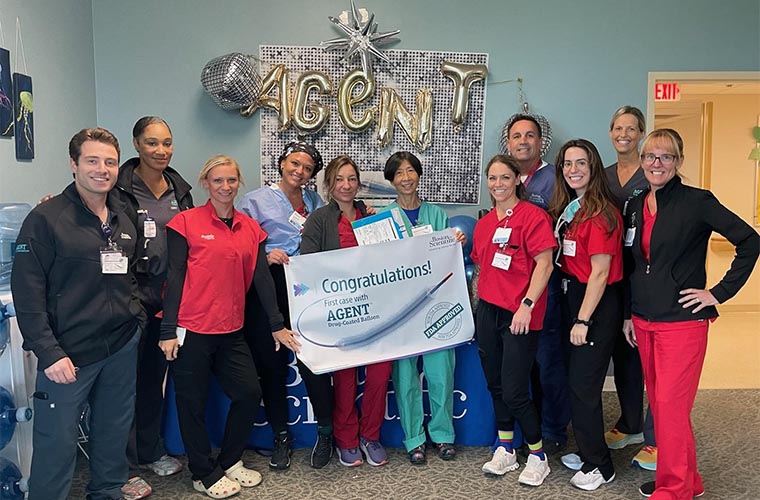Morton Plant Hospital First in Tampa Bay to Use New Treatment for Restenosis

Morton Plant Hospital recently became the first hospital in the Tampa Bay area to use a drug-coated balloon to treat in-stent restenosis. The hospital was ranked #1 in Florida for Cardiac Surgery in 2023 by Healthgrades, where the area's first robotic-assisted coronary artery bypass surgery took place in early June.
BayCare Medical Group’s Interventional Cardiologist Lang Lin, MD, and her expert team of medical professionals at Morton Plant Hospital performed the first procedure with the drug-coated balloon earlier this month.
Restenosis occurs when an artery that has previously been stented narrows again because of plaque or scar tissue.
Treating in-stent restenosis remains a significant challenge for both patients and cardiologists, even 20 years after drug-eluting stents (which are coated with medicine to keep arteries open) became the standard of care." Dr. Lin said.
Until now, in-stent restenosis has most commonly been treated in one of two ways: by placing an additional stent in the stent of the artery that has narrowed again or by performing coronary artery bypass surgery. The challenge with two or more layers of stents is that additional stents become less effective and more difficult to treat. Coronary artery bypass surgery has increased risks with older patients and sometimes limited bypass target vessels.
The new drug-coated ballon, AGENT™ from Boston Scientific, was approved by the U.S. Food and Drug Administration (FDA) for commercial use in March. The balloon catheter, the first drug-coated coronary balloon in the United States, reopens the narrowed stent and releases the high concentration of drugs to prevent scar tissue from forming and blocking the artery wall again.
“We are pleased to have the opportunity to offer this cutting-edge treatment to our patients,” Dr. Lin said. “The new technology will help us to treat certain patients with in-stent restenosis without the need for another stent, invasive surgery or brachytherapy (radiation).”
For more information on heart and vascular services at BayCare: BayCare’s Heart and Vascular Services.
